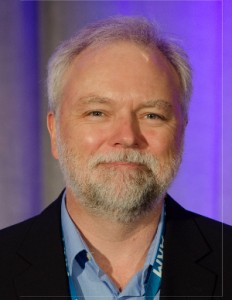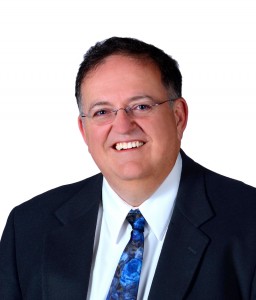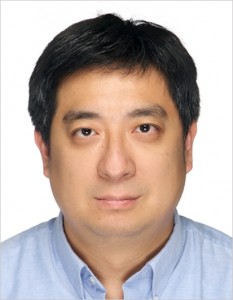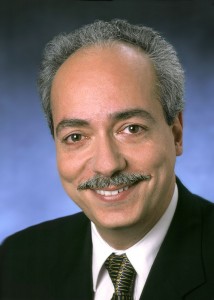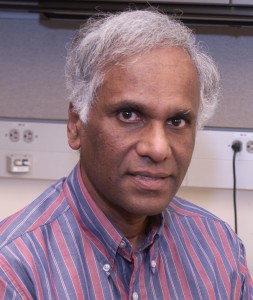Room:
ORGANIZER:
Show full Bio.
Prof. Mitra’s research interests include robust system design, VLSI design, CAD, validation and test, emerging nanotechnologies, and emerging neuroscience applications. His X-Compact technique for test compression has been key to cost-effective manufacturing and high-quality testing of a vast majority of electronic systems, including numerous Intel products. X-Compact and its derivatives have been implemented in widely-used commercial Electronic Design Automation tools. He, jointly with his students and collaborators, demonstrated the first carbon nanotube computer, and it was featured on the cover of NATURE. The National Science Foundation (NSF) presented this work as a Research Highlight to the United States Congress, and it also was highlighted as “an important, scientific breakthrough” by the BBC, Economist, EE Times, IEEE Spectrum, MIT Technology Review, National Public Radio, New York Times, Scientific American, Time, Wall Street Journal, Washington Post, and numerous other organizations worldwide.
Prof. Mitra’s honors include the Presidential Early Career Award for Scientists and Engineers from the White House, the highest US honor for early-career outstanding scientists and engineers, ACM SIGDA/IEEE CEDA A. Richard Newton Technical Impact Award in Electronic Design Automation, a “test of time” honor for an outstanding technical contribution, and the Intel Achievement Award, Intel’s highest corporate honor. He and his students published several award-winning papers at major venues: IEEE/ACM Design Automation Conference, IEEE International Solid-State Circuits Conference, IEEE International Test Conference, IEEE Transactions on CAD, IEEE VLSI Test Symposium, Intel Design and Test Technology Conference, and the Symposium on VLSI Technology. At Stanford, he has been honored several times by graduating seniors “for being important to them during their time at Stanford.”
Prof. Mitra has served on numerous conference committees and journal editorial boards. He served on the Defense Advanced Research Projects Agency’s (DARPA) Information Science and Technology (ISAT) Board as an invited member. He is a Fellow of the ACM and the IEEE.
MODERATOR
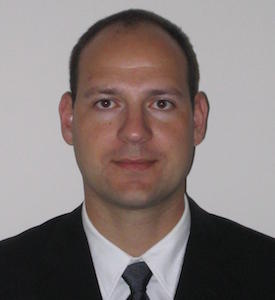 Yiorgos Makris (U Texas at Dallas)
Yiorgos Makris (U Texas at Dallas)
Show full Bio.
PANEL MEMBERS
Industry:
Robert C. Aitken (ARM, USA).
Show full Bio.
Show full Bio.
Show full Bio.
Jonathan is a senior member of the IEEE since 2006 and serves as a technical program committee member of Memory subcommittee for 2013/2014/2015/2016 ISSCC. Jonathan serves as technical program committee member of VLSI symposium on circuits in 2016 (JFE) and 2011 (NAE) and technical program committee member of International Test Conference in 2014. Since 2011, Jonathan has been the associate editor of IEEE Trans on VLSI. Jonathan has published 20+ technical papers in IEEE conferences or journals and held 5 patents with additional 15 pending in SRAM design.
Jonathan Chang received the B.S. degree in electrical engineering from National Taiwan University, and the M.S. and Ph.D. degrees in electrical engineering from Stanford University, Stanford, CA.
Show full Bio.
Dr. Zorian holds 35 US patents, has authored four books, published over 350 refereed papers and received numerous best paper awards. A Fellow of the IEEE since 1999, Dr. Zorian was the 2005 recipient of the prestigious Industrial Pioneer Award for his contribution to BIST, and the 2006 recipient of the IEEE Hans Karlsson Award for diplomacy. He received the IEEE Distinguished Services Award for leading the TTTC, the IEEE Meritorious Award for outstanding contributions to EDA, and in 2014, the Republic of Armenia’s National Medal of Science.
He received an MS degree in Computer Engineering from University of Southern California, a PhD in Electrical Engineering from McGill University, and an MBA from Wharton School of Business, University of Pennsylvania.
Academics:
Jacob Abraham (U Texas at Austin, USA)
Show full Bio.
Prof. Abraham has been at the University of Texas at Austin since 1988, where he holds an endowed chair in Engineering. At Texas, he devised a fault injection system, emulating hardware faults using software, to evaluate fault-tolerance capabilities of systems. He suggested the use of genetic algorithms for test generation, and developed the technique of “native-mode self-test” in which instruction sequences residing in memory are used as tests for faults in complex processors. He also developed techniques for testing analog/mixed-signal circuits and designs of on-chip circuits for facilitating the tests.
He has published extensively, has received many “best paper” awards, and is included in the ISI list of “highly-cited” researchers. He has supervised more than 90 Ph.D. dissertations and is particularly proud of the accomplishments of his students, many of whom hold senior positions in academia and industry. He has been elected Fellow of the IEEE as well as Fellow of the ACM, and is the recipient of the 2005 IEEE Emanuel R. Piore Award.
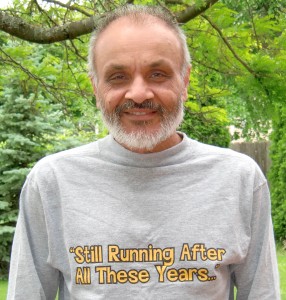 Janak Patel (U Illinois at Urbana Champaign, USA)
Janak Patel (U Illinois at Urbana Champaign, USA)
Show full Bio.
Patel’s research contributions include Pipeline Scheduling, Cache Coherence, Cache Simulation, Interconnection Networks, On-line Error Detection, Reliability analysis of memories with ECC and scrubbing, Design for Testability, Built-In Self-Test, Fault Simulation and Automatic Test Generation. Patel has supervised over 85 M.S. and Ph.D. theses and published over 200 technical papers . He was a founding technical advisor to Nexgen Microsystems that gave rise to the entire line of microprocessors from AMD. He was a founder of successful startup, Sunrise Test, a CAD company for chip testing, now owned by Synopsys.
He received a Bachelor of Science degree in Physics from Gujarat University, India and Bachelor of Technology in Electrical Engineering from the Indian Institute of Technology, Madras, India, and a Master of Science and Ph.D. in Electrical Engineering from Stanford University. He is a fellow of ACM and IEEE and a recipient of the 1998 IEEE Piore Award.
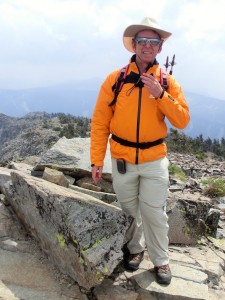 Hans-Joachim Wunderlich (U Stuttgart, Germany).
Hans-Joachim Wunderlich (U Stuttgart, Germany).
Show full Bio.


